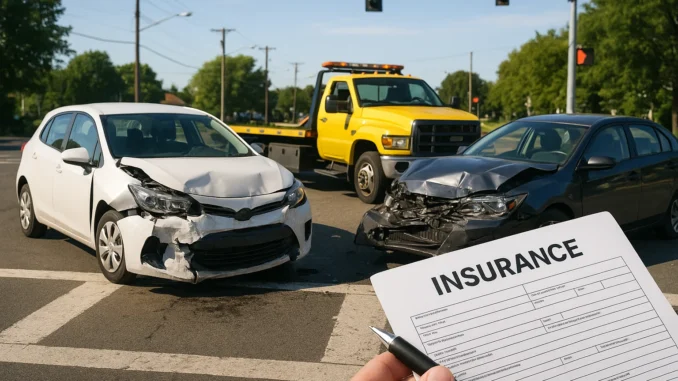
Introduction
Accidents can have a major impact on your insurance costs. Understanding how accidents affect car insurance helps you manage premiums, file claims correctly, and protect your financial future.
How Accidents Affect Car Insurance: Key Factors
Insurance companies evaluate accidents based on several criteria:
1. Fault Determination and Insurance Impact
Being at fault increases your insurance rates more than non-fault accidents. Insurance providers determine fault using police reports, witness statements, and sometimes accident reconstruction.
2. Accident Severity and Premium Changes
Major accidents with high repair or medical costs typically increase rates more than minor collisions. Knowing the likely financial impact helps you prepare for premium changes.
3. Claims History and Future Premiums
Frequent claims—even small ones—signal higher risk to insurers, raising your rates. Maintaining a clean record after an accident is crucial.
4. Coverage Type Influence
Comprehensive or collision coverage usually results in higher rate adjustments after an accident than basic liability coverage.
5. State Insurance Rules
Some states limit how much premiums can increase after an accident. Check local regulations to understand your rights.
Internal Links:
- How Traffic Violations Affect Your Auto Insurance Rates
- How to Lower Your Car Insurance Premiums Without Sacrificing Coverage
Average Impact of Accidents on Car Insurance Rates
On average, accidents can increase your premiums as follows:
- Minor accidents: 15–20%
- Moderate accidents: 20–40%
- Major accidents: 40–60%
Rates vary by insurer, driving history, and state. Understanding these numbers helps you anticipate financial consequences.
Outbound Links:
How Long Accidents Stay on Your Insurance Record
Accidents remain on your record for 3–5 years, depending on state laws and insurer policies. Even after removal, your rates may remain elevated for some time.
Strategies to Reduce the Impact of Accidents on Car Insurance
1. Compare Insurance Quotes After an Accident
Different insurers weigh accident history differently. Switching companies can sometimes save money.
2. Maintain a Clean Driving Record
Avoid additional violations or collisions. This shows insurers that you are responsible, reducing long-term rate increases.
3. Utilize Accident Forgiveness Programs
Many insurers offer programs that prevent your first at-fault accident from raising rates.
4. Increase Your Deductible Strategically
Higher deductibles lower premiums, but require higher out-of-pocket payments for future claims.
5. Take Defensive Driving Courses
Approved courses can demonstrate safer driving and may reduce premiums after an accident.
Internal Link:
Minor vs Major Accidents: Insurance Implications
- Minor Accident: Small damage, minor claims, limited rate increase.
- Major Accident: Significant property damage or injuries, higher premium hikes.
Knowing the difference helps predict insurance costs.
Filing a Claim: When It Affects Your Rates
- Not-at-Fault Accidents: May not increase premiums.
- Small Claims: Some insurers have thresholds that avoid rate hikes.
- Comprehensive Claims: Non-collision claims like theft often have minimal effect.
Talking to Your Insurance Company After an Accident
- Document everything: photos, witness statements, and police reports.
- Be honest: avoid exaggerating damages.
- Ask questions: understand the effect on rates and available discounts.
- Negotiate: some insurers can apply accident forgiveness or flexible solutions.
Outbound Link:
Discounts That Can Offset Accident-Related Premium Hikes
- Bundling policies (auto + home)
- Safe driving post-accident
- Low mileage
- Loyalty rewards
When to Consider Switching Insurance Companies
High rate increases may justify switching providers. Compare quotes, coverage, and accident forgiveness policies before making a move.
Long-Term Effects of Accidents on Insurance
- New policy applications may be affected.
- Loan or lease requirements may become more expensive.
- Multiple accidents compound over time, increasing premiums.
Conclusion
Understanding how accidents affect car insurance allows you to manage premiums, reduce financial stress, and maintain coverage. By using discounts, exploring forgiveness programs, and practicing safe driving, you can minimize the impact of accidents on your insurance.

Leave a Reply